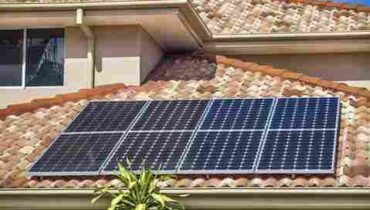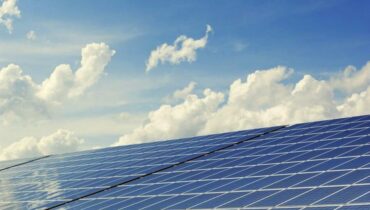As the world becomes more conscious of its carbon footprint and the impact of traditional energy sources on the environment, the demand for renewable energy has increased. Solar panels are a popular choice for homeowners looking to switch to clean energy. However, to get the most out of your solar panels, you need to consider their efficiency.
Table of Contents
What is Solar Panel Efficiency?
Solar panel efficiency refers to the amount of sunlight that can be converted into usable energy. The higher the efficiency of your solar panels, the more electricity they can generate for your home or business. The efficiency of solar panels is affected by factors such as the quality of the solar cells, the type of materials used, and the angle and direction of the panels.
How is Solar Panel Efficiency Measured?
Solar panel efficiency is measured as a percentage of the total energy from the sun that is converted into usable electricity. The most efficient solar panels on the market today have an efficiency rating of around 20-22%. This means that they can convert 20-22% of the sunlight that hits them into usable electricity.
Factors that Affect Solar Panel Efficiency
Several factors can affect the efficiency of your solar panels, including:
Quality of Solar Cells: The quality of the solar cells used in your solar panels can have a significant impact on their efficiency. High-quality solar cells can convert more sunlight into electricity.
Type of Materials Used: The type of materials used in your solar panels can also affect their efficiency. There are two types of solar cells commonly used in solar panels: monocrystalline and polycrystalline. Monocrystalline solar cells are made from a single, pure silicon crystal, while polycrystalline solar cells are made from multiple silicon crystals. Monocrystalline solar cells are more efficient than polycrystalline solar cells, with efficiency ratings of up to 22% compared to polycrystalline solar cells, which have efficiency ratings of around 15-17%.
Angle and Direction of Panels: The angle and direction of your solar panels can also affect their efficiency. For optimal efficiency, solar panels should be angled to face the sun and should not be shaded by nearby trees or buildings.
Tips for Maximizing Solar Panel Efficiency
To get the most out of your solar panels, follow these tips:
Choose High-Quality Solar Panels: Invest in high-quality solar panels with a high efficiency rating to ensure maximum energy output.
Optimize Panel Placement: Ensure that your solar panels are placed in a location that receives maximum sunlight and is not shaded by nearby trees or buildings.
Keep Panels Clean: Regularly clean your solar panels to remove any dirt, dust, or debris that may be blocking sunlight.
Monitor Performance: Keep track of your solar panel’s performance to ensure that they are operating at optimal efficiency.
Benefits of High Solar Panel Efficiency
The benefits of high solar panel efficiency include:
Lower Energy Bills: High-efficiency solar panels can generate more electricity, which can help reduce your energy bills.
Reduced Carbon Footprint: Solar energy is a clean and renewable energy source that can help reduce your carbon footprint and impact on the environment.
Increased Home Value: Solar panels can increase the value of your home, especially if they are high-efficiency panels that generate more energy.
Cost-Benefit Analysis of High-Efficiency Solar Panels:
When considering investing in solar panels, homeowners and businesses need to weigh the costs and benefits of high-efficiency solar panels.
High-efficiency solar panels have a higher upfront cost than low-efficiency panels, but they can generate more electricity, which can result in lower energy bills over time. Therefore, it is essential to calculate the payback period for high-efficiency solar panels to determine whether the increased energy output justifies the higher initial cost.
Additionally, businesses can benefit from tax incentives and government subsidies for investing in renewable energy, which can help offset the higher upfront cost of high-efficiency solar panels.
Conclusion:
Solar panel efficiency is an important factor to consider when investing in solar panels for your home or business. By choosing high-quality solar panels, with more efficient solar cells, optimizing panel placement, keeping panels clean, and monitoring their performance, you can maximize the energy output of your solar panels and reap the benefits of clean and renewable energy.

